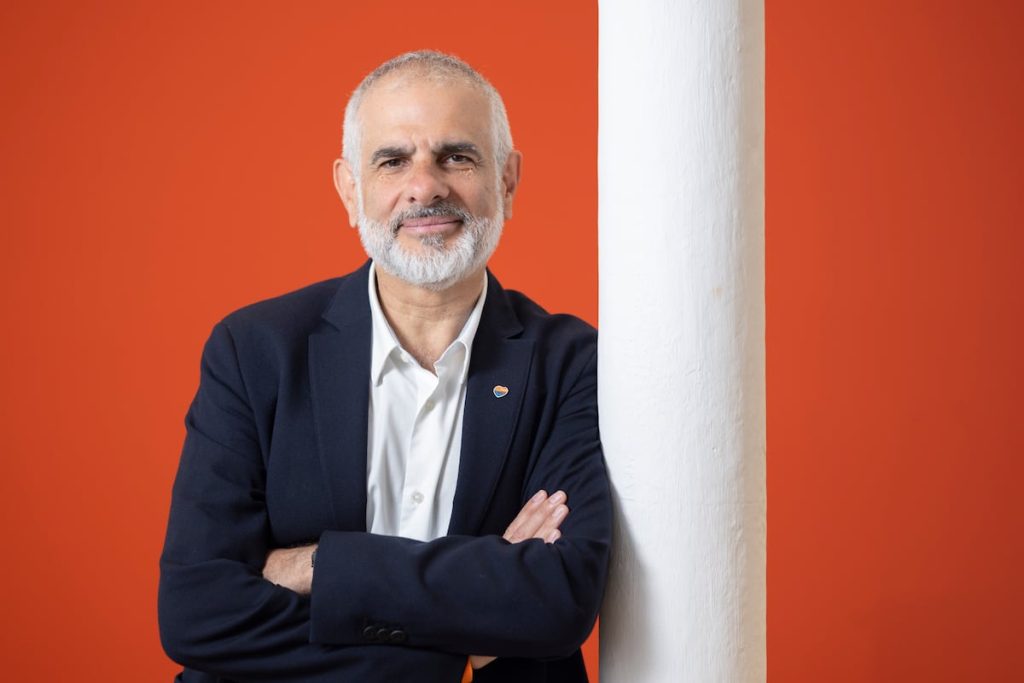Carlos Carrizosa, the 60-year-old lead candidate for Ciudadanos, is confident that his party will defy the polls and not disappear from the Catalan Parliament. Their campaign poster, created using artificial intelligence, features the slogan “Stop them” with a picture of Pedro Sánchez and Carles Puigdemont shaking hands. Their red line is not to support a government that has the votes of pro-independence parties. Asked about Pedro Sánchez staying in power, Carrizosa believes this will play a significant role in the Catalan campaign, as it represents his alliances with the separatist movement.
The campaign poster has received criticism for being too provocative, but Carrizosa defends it by saying it accurately depicts the two figures: Sánchez, who is seen as giving in to the separatists, and Puigdemont, who was politically marginalized but is now being considered a potential president again. The other campaign image of Puigdemont behind bars has not gone over well with Junts, but Carrizosa believes that his party is the true adversary of separatism in Catalonia, representing those who do not align with the nationalist agenda.
Despite Ciudadanos not currently being represented in the polls, Carrizosa remains optimistic, pointing out that they have surpassed expectations in previous elections. He attributes their current struggles not to the effects of the pro-independence movement, but to general political fatigue and disillusionment among voters. He also criticizes other parties for aligning with separatist interests and emphasizes Ciudadanos’ role as a defender of constitutional values.
When asked whether things would have been different if Albert Rivera had remained in charge, Carrizosa suggests that Ciudadanos’ influence could have prevented some of the concessions that other parties have made to the separatists. He expresses satisfaction at not merging with the PP for this campaign, pointing out that their party was founded on different principles and beliefs. He also defends their approach as not aggressive or populist, but necessary in confronting taboos within Catalan politics.
Regarding language policy and the decline of Catalan among younger generations, Carrizosa argues that promoting multilingualism, including Catalan, Spanish, and English, is the way forward. He believes that imposing a singular language can lead to rejection, especially among the youth, and that fostering a shared and inclusive linguistic environment is essential. He also criticizes the governing parties for their handling of language and cultural policies.
In conclusion, Carrizosa maintains his faith in Ciudadanos and its mission to provide a voice for those who do not align with the traditional parties in Spain. He expresses disappointment in Salvador Illa’s support for amnesty for Catalan separatists, believing it to be a step in the wrong direction. Despite challenges, he remains committed to his party’s principles and vision for Catalonia, emphasizing the need for a political alternative that can resist the pressures of nationalism and prioritize the interests of all citizens.















